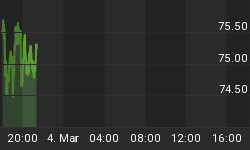08:30 EST, Fri 10 July
Gold Fix Hits Two-Month Low, But Demand Solid, "Big Picture Bullish"
THE PRICE OF GOLD SLID yet again early Friday in London, recording the lowest AM Gold Fix since 8th May at $910 per ounce, and nearing Wednesday's two-month lows in the spot market at $905.
Down 2.5% down from last Friday's finish, the Dollar-price of Gold showed its worst weekly performance since the start of June ahead of today's Wall Street opening.
"In the near term, day-to-day moves continue to be influenced by the direction the Dollar takes," said one Shanghai analyst to Reuters this morning.
"In the longer term, inflationary expectations remain."
Japan however reported the fastest drop in wholesale prices since at least 1960 today, while US crude oil contracts dropped below $60 per barrel for the first time since mid-May, down 18% from the 2009 high hit just over a week ago.
The FTSE100 stock index here in London fell to its lowest level since late April. Tokyo's Nikkei ended the week down more than 5% from last Friday.
"Physical [Gold] demand remains depressed and it may take lower prices to prompt buying," says the July edition of Metal Matters from London market-makers Scotia Mocatta, pointing to a short-term technical target of $896 after the Dollar-price completed a head-and-shoulders pattern last month.
"However, the big picture outlook for Gold remains bullish...Competitive devaluation amongst numerous hard currencies will lead to further trouble for the financial markets. This is likely to keep interest in Gold running at a high level.
"As such, we would see any sell-off in Gold as a medium term buying opportunity."
On the currency markets today, the zero-yielding Japanese Yen pushed higher against all other major currencies, signaling "risk aversion" amongst Tokyo funds pulling cash home.
The Euro also fell against the US Dollar, but Gold Prices fell faster still, dropping to a 3-month low of €652.60 per ounce.
For UK investors now Ready to Buy Gold, the price bounced off a fresh 6-month low of £557.60 overnight.
Sharply lower from the first quarter of 2009, daily volatility in the British Pound's effective exchange rate, the Sterling Index, remains twice the level of its two-decade average.
"Aggressive global monetary stimulus is reflationary, [it] has defused the tail risk of deflation, and has helped to lift commodity prices," reckon Richard Berner and David Greenlaw, the chief US and fixed-income economists at Morgan Stanley in New York.
Calling the ongoing drop in asset and consumer prices "disinflation" rather than deflation, "The near-term risk of lower underlying inflation gives the Fed latitude to maintain accommodation [i.e. zero rates and Quantitative Easing] for now," they go on.
But "unlike those who believe that low inflation and easy money will persist into 2011, we think that tighter monetary policy will be needed in 2010 to prevent inflation from rising too far too fast."
Over in India, meantime, the world's hungriest gold market, the federal government in Mumbai yesterday said it's issued 6,775 new licenses to jewelers to use its hall-marking centers and adding to a 20% increase for the year-to-April.
The Gold Hallmarking Scheme was launched in 2008 to encourage consumer confidence in bullion jewelry, obliging manufacturers to hit mandated standards of fineness.
Earlier this week, the Indian government also doubled import duties on Gold Bullion, despite a 50% drop in metal inflows from this time last year.
"Strong physical [Gold] demand is not likely to be triggered unless the metal breaks below the 900 level," says MKS Finance, a division of the Swiss refining group.
"Ironically, it is the marginal physical demand coming in above 900-905 that is preventing an aggressive selloff to penetrate that level."
Walter de Wet at Standard Bank meantime believes that "Buyers of gold in the physical market are now willing to pay a higher price for gold than a few months ago," pointing to strong physical flows in the wholesale market centered in London.
"We believe that sellers of scrap gold now require a much higher Gold Price to part with their gold than in February. Against the global economic backdrop, we view this as bullish for gold over the next six months. "
On the supply side of the market yesterday, South Africa reported a 10.5% drop in May's Gold Mining output from 12 months before.
"Gold Mining is a shrinking industry, it's been like that for almost a decade," says Dave Mohr, chief economist at Citadel Investment Services.
"We have run out of our high-grade gold deposits," he told AFP, adding that after dropping to second and then third place in world rankings behind China and the United States, South Africa is now likely to be overtaken by Australia.















